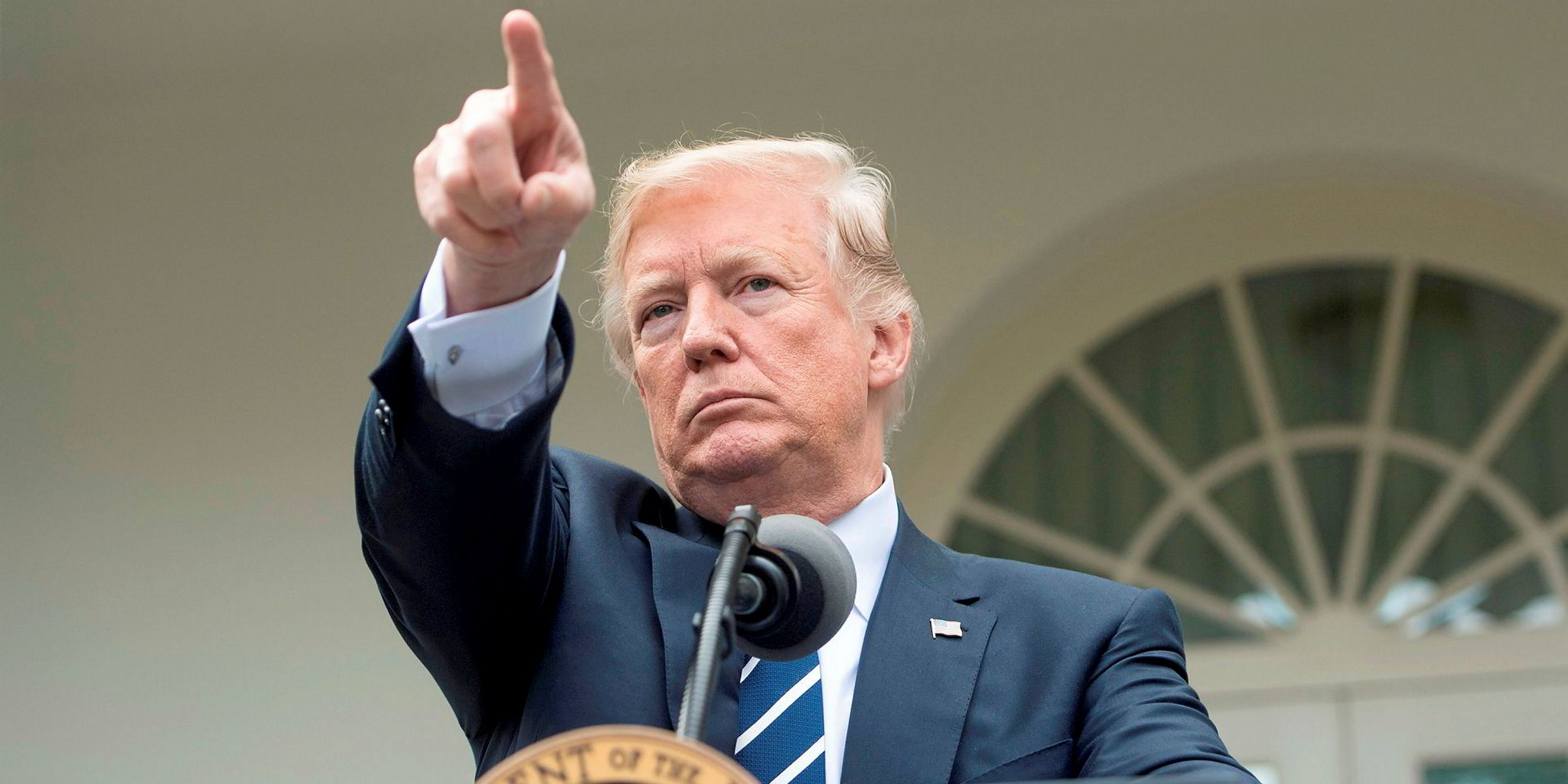If the Bay of Naples in the autumn sun does not lift the spirit and inspire you to think big about the world, then nothing will. That is the theory of Francesco Lauro, a Neapolitan lawyer and former port boss with more energy than the Italian electricity grid. He runs an annual "Shipping and the Law" event in the Italian city, this year using the Royal Palace of Naples.
His ambitious plan seems to work, even when it demands verbal informality on the stage of the palace’s stunning 18th-century baroque Court Theatre.
Some of the world’s most important maritime figures arrived to debate major themes such as the rise of Chinese maritime power, the impact of Donald Trump as US president and what to do about climate change.
How refreshing to hear some gloves-off debate without the usual stiff conference protocols and overlong individual speeches.
So what did we learn? That the mighty Chinese shipping and trade juggernaut is a threat and an opportunity.
There is much to love about the extraordinary modernisation of the Far East economy and the dry bulk boom it inspired.
But there is also apprehension about the huge buying power of the state-backed Chinese shipowning, yard and port community, which is sweeping up assets all over the world.
Mario Mattioli, the newly installed head of Italian shipowners' association Confitarma, has watched Chinese money being poured into local ports such as Vado Ligure, near Genoa, and Venice, as well as docks in Spain, Turkey, and Egypt.
Mattioli said Italy being at the end of the new Belt and Road Initiative could offer great advantages.
But he also admitted he found it “scary” that the kind of cash being used by Beijing was many times the scale of the Marshall Plan, which refloated Europe’s bombed-out economies after World War II.
Magda Kopczynska, director for waterborne transport at the European Commission, said much of what was happening was positive and it was getting easier to communicate with Beijing.
But there was still a certain lack of transparency and Western investment in China was not subject to the same sort of freedoms that Chinese investment enjoyed in the West.
This should change, as European Community Shipowners' Association (ECSA) president-elect Panos Laskiridis agreed. Would the European Commission intervene in any further Chinese port investments in Europe? Kopczynska said she would certainly like to see European ports and governments set the ground rules for reciprocal arrangements in China.
There was much debate next on the moves towards political separatism and trade protection raised by Trump, Brexit and latest political developments in the Spanish region of Catalonia.
The general reaction from the shipping community was to ride the choppy waters but remain relaxed.
There were hopes of that dry bulk boom coming on the back of a promised increase in infrastructure spending but clearly concerns that there could be any strengthening of laws such as the Jones Act.
The Trump bark was perhaps worse than his bite, given the constraints he faced from his own Republican Party opposition.
But, equally, a second four-year term of Trump policy was regarded as a potential threat to shipping.
More heat was generated in the debate over global warming, not least when British energy economist Leo Drollas questioned the whole basis of action against climate change. He believed it was impossible that new technology could arrive quickly enough to sweep away oil-fired ships.
And then there was an interesting contrast in the attitudes of the representatives from the International Chamber of Shipping and the ECSA.
ICS chairman Esben Poulsson was determined to paint a positive picture, saying his members were keen to play a leading role to reduce their CO2 emissions.
Laskiridis struck a more combative stance, admitting he had not really listened to an earlier audio presentation on the issue from Baroness Bryony Worthington — the lead author on the UK's Climate Change Act — as she sounded like “a typical politician”.
He said shipping was hampered by a lack of any real breakthroughs on alternative non-fossil-fuel bunkers. If operational options were going to be used, such as globally imposed slow steaming, then costs would rise and shippers would have to foot the bill.
I am not sure this bodes well for progress on carbon constraints at the International Maritime Organization, but it made for good drama in the Royal Palace.




